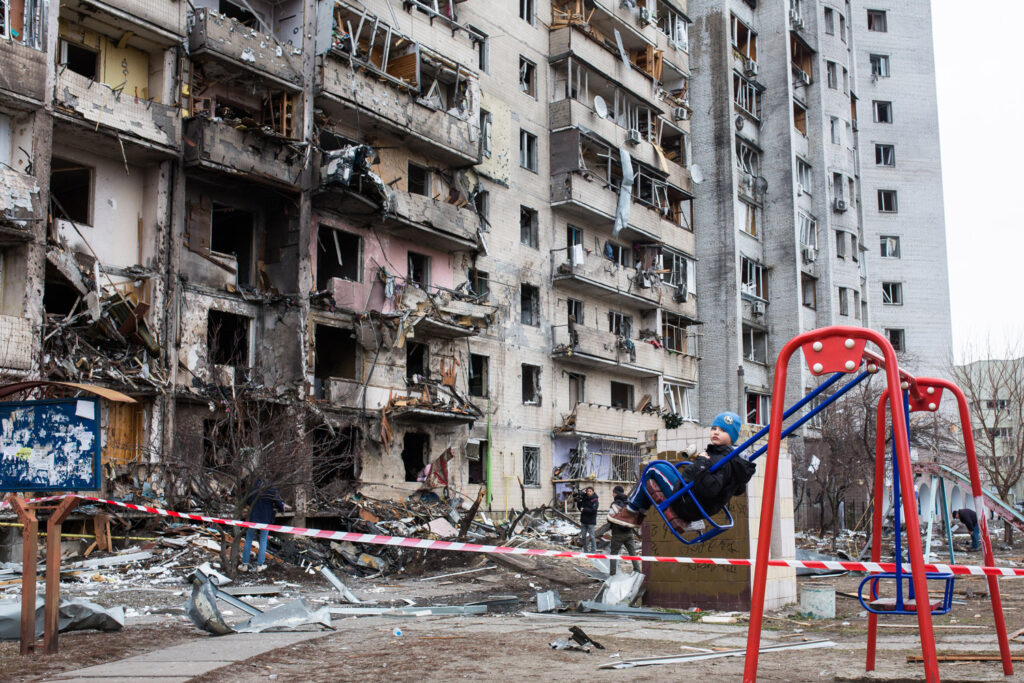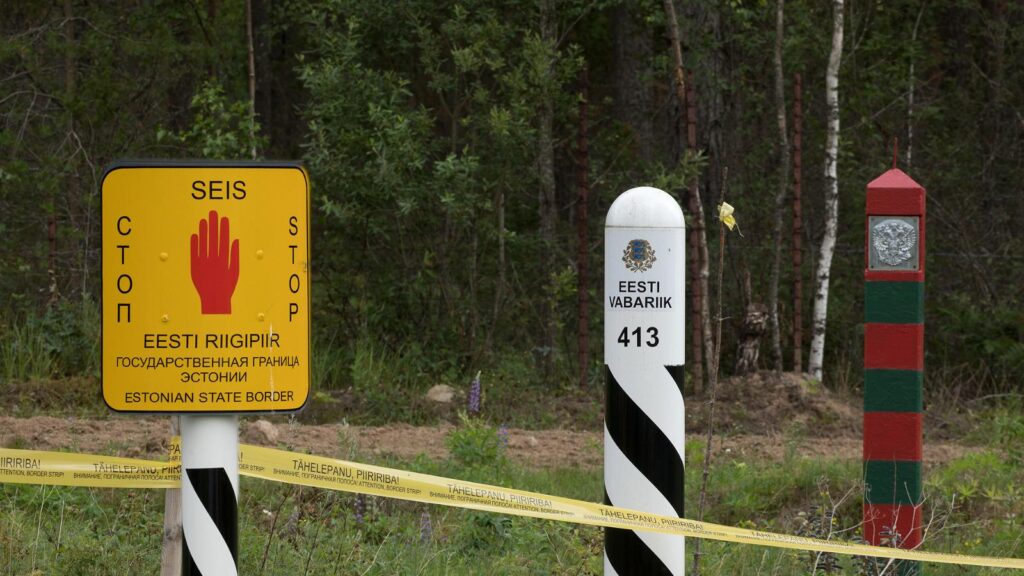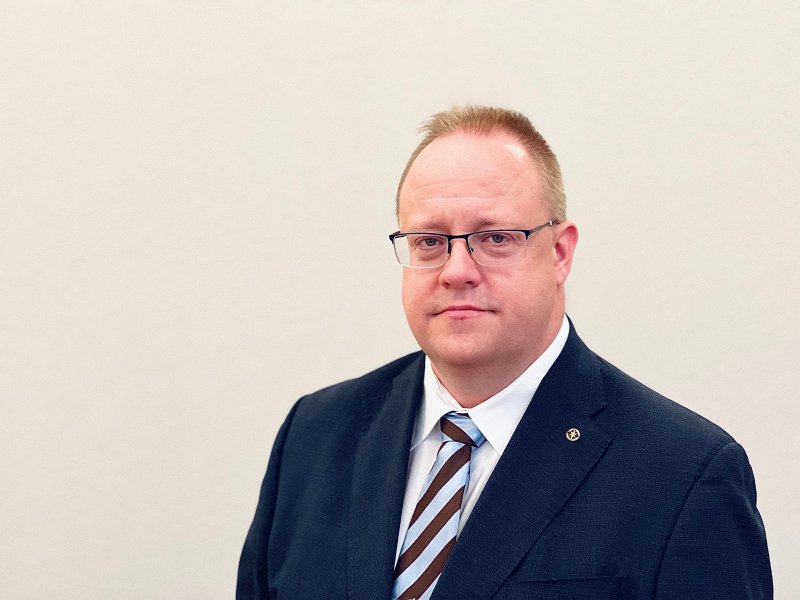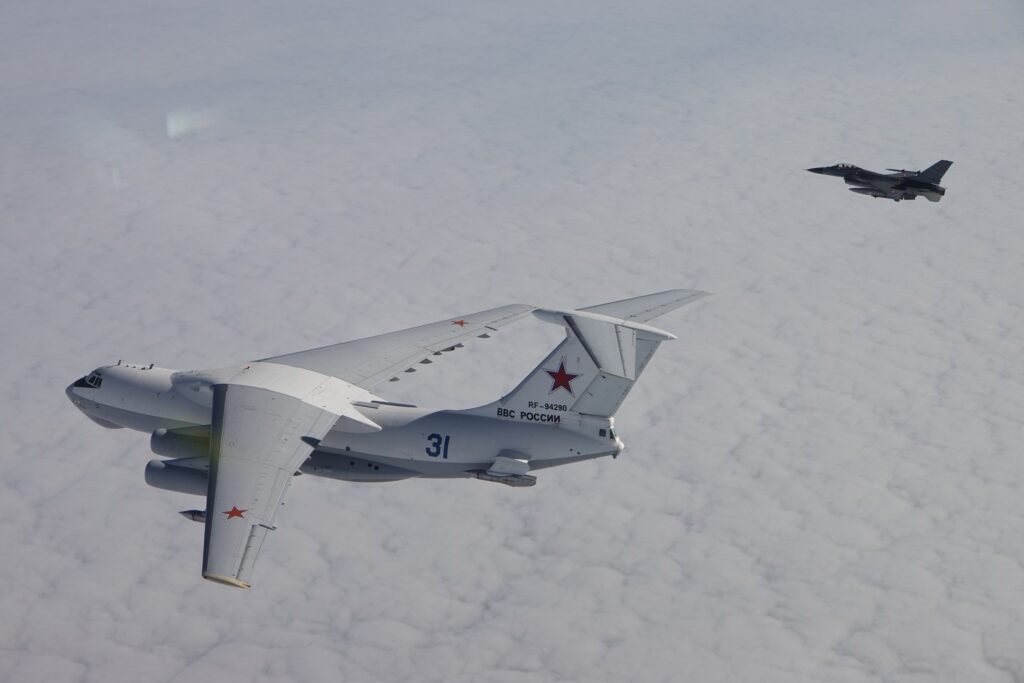According to the Estonian Foreign Intelligence Service, Russia is militarising on all levels and, in the Kremlin’s view, is engaged in a long-term confrontation with the entire “collective West”.
“Although Russia’s blitzkrieg plans have failed, [the Russian president] Vladimir Putin still believes that by continuing the conflict he can force the opposing parties to the negotiating table. I refer to the opposing parties in the plural because, in the Kremlin’s mindset, they are not only fighting Ukrainians, but their chosen path involves a long-term confrontation with the entire ‘collective West’,” writes Kaupo Rosin, the director general of the Estonian Foreign Intelligence Service, in the foreword to this year’s annual report, “International Security and Estonia 2024”.
“This is exemplified by Russia’s military reform, which is presented as a response to NATO enlargement. The success of this reform depends largely on the course of the current war, but we can expect that within the next decade NATO will be faced with a Soviet-style mass army that, while technologically inferior to the allies, poses a significant threat because of its size, firepower and reserves,” Rosin continues.
“Although Russia’s massive human resources – reduced to cannon fodder – have not been able to conduct large-scale offensive operations in Ukraine, the Kremlin’s war machine still has enough fuel.”
According to foreign intelligence, the Russian military industry is running at full throttle, society is militarising at all levels and the Putin regime is showing its increasingly totalitarian face.

Nuclear rhetoric to intimidate the West
“The prolonged, intense military conflict is causing growing tensions in domestic politics, and a sense of war-weariness is spreading in Russian cities and regions. Yet the Kremlin’s repressive apparatus controls social morale so tightly that even the pleas of tens of thousands of mothers of soldiers left behind on the battlefield have yet to resonate in a way that would seriously threaten the regime’s stability”.
In addition to domestic propaganda efforts, the Kremlin continues to use nuclear rhetoric to intimidate Western publics and spread toxic false narratives, although its ability to do so has become quite limited, the report says.
“Russia, relegated to pariah status in the eyes of the Western world, is trying to compensate for its loss of influence by keeping former Soviet countries, the global South and Arab states in its orbit. But potential partners are more interested in pragmatic negotiations than in developing strategic relations.
“While the likelihood of a direct military attack on Estonia in the coming year remains low, the security situation in Europe and along Estonia’s borders in the near future depends on whether Ukraine, with the support of its allies, can crush Russia’s imperialist ambitions.”

Europe needs to be prepared
At the press conference to launch the report, Rosin told journalists that the Kremlin was probably anticipating a possible conflict with NATO within the next decade. He said the assessment was based on Russian plans to double the number of troops stationed on its borders with Finland, Estonia, Lithuania and Latvia.
In the short term, a military attack by Russia is highly unlikely because Russia needs to keep its troops in Ukraine; it would remain unlikely if Europe matched the Russian build-up of forces.
“If we are not prepared, the probability [of a Russian military attack] would be much higher than without any preparation,” Rosin noted.
The International Security and Estonia 2024 report also looks at China, saying that Russia and China both share opposition to the United States and its allies, but unlike Russia, which is preoccupied with its war in Ukraine, China is more focused on realising its global ambitions, seeing and cultivating its partnership with Russia in a larger framework, and seeking to build a global network that operates on China’s terms.

The threat of Islamic terrorism remains high
“China’s increasingly ideological foreign policy may be clouding its perception of the global landscape. Over the past year, China has noticeably increased its influence activities towards Europe. The Belt and Road Initiative continues to occupy a central place in China’s global strategy,” the report says.
The Belt and Road Initiative, to which the report refers, is a global infrastructure development strategy adopted by the Chinese government in 2013 to invest in more than 150 countries and international organisations, and calls for China to take a greater leadership role in global affairs in line with its rising power and status. As of August 2023, 155 countries are listed as having signed up to the BRI; participating countries include nearly 75% of the world’s population and account for more than half of the world’s GDP.
According to the report, the threat of terrorism in Europe will remain high in the near future. Against the backdrop of the Koran-burning demonstrations in 2023, Islamic radicals have successfully created an environment conducive to organising revenge attacks against Western countries and recruiting new members.
European security is increasingly affected by the growing ability of the Islamic State’s Afghanistan branch and al-Qaeda’s North African branch to conduct operations in European countries, the foreign intelligence service says. The goal of Islamic State and al-Qaeda is to carry out large-scale attacks in Europe comparable to the terrorist attacks in Paris in 2015 and Brussels in 2016, it adds.
The full report is available in English on the website of the Estonian Foreign Intelligence Service.

